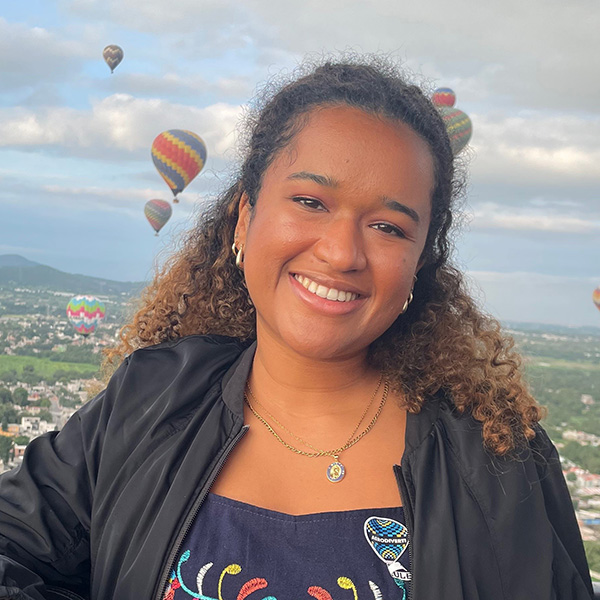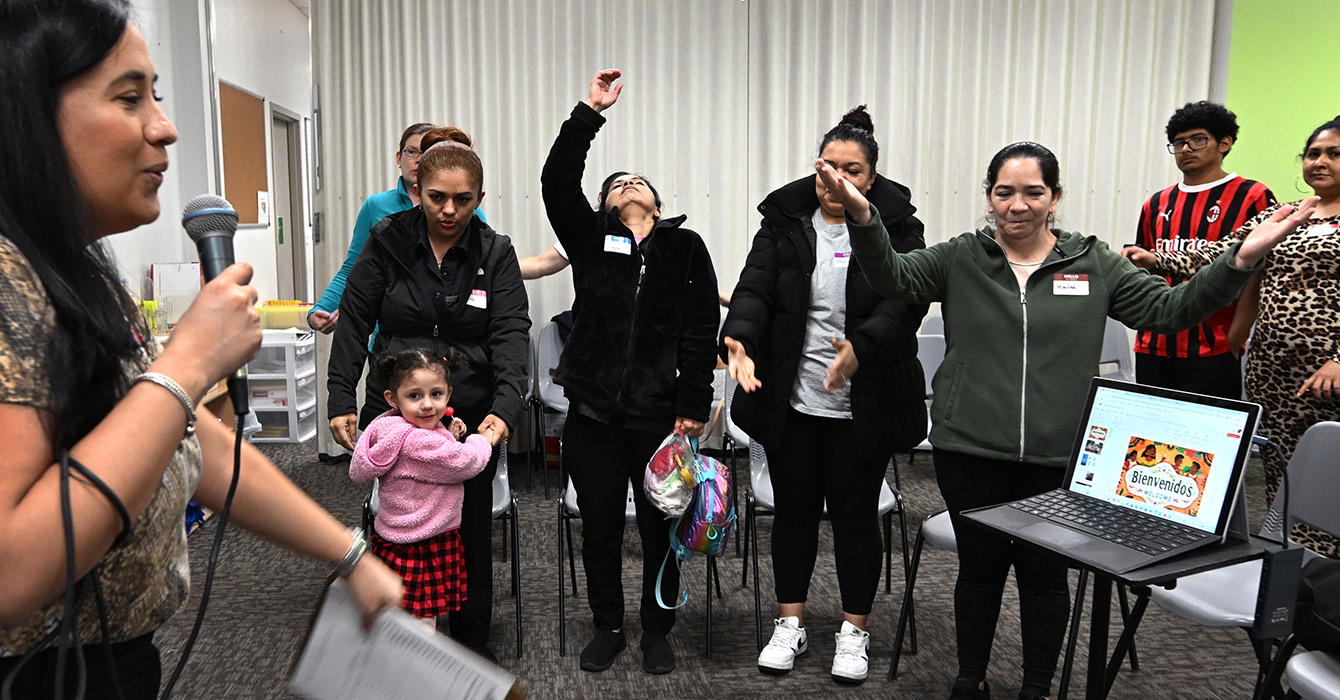As a product of the Black church, I can certainly say that my career as a child and adolescent psychologist has benefited from the church’s love, support and guidance.
One of my most valued mentors is the Rev. Dennis Bishop of First Waughtown Baptist Church in Winston-Salem, North Carolina. Rev. Bishop prioritized youth empowerment in his ministry, which was most evident in his annual college tours.
Each academic year, he visited his college students — he fed us, brought us care packages, gave us words of wisdom and prayed for our continued success. It was during one of these visits that I shared with him my vision of becoming a clinical psychologist. Rev. Bishop applauded my ambitions and planted seeds of inspiration that have grown ever since.
Rev. Bishop epitomizes how places of worship can promote youth empowerment — by helping young people set meaningful life goals and supporting their efforts to navigate any obstacles that impede their attainment.
Historically, faith communities have been cultural epicenters where BIPOC youth, like myself, have found guidance and support. And while some BIPOC youth, most egregiously those within the LGBTQIA+ community, have experienced discrimination and hurt within places of worship, faith communities remain a key resource for many BIPOC youth in realizing meaningful daily and lifelong goals.
Guided in part by influences like Rev. Bishop, I have established a career path that seeks to clarify how pillars of the community can continue to promote BIPOC youth empowerment during our nation’s surging mental health crisis that is disproportionately affecting racial minorities. Specifically, I have developed the Racial, Ethnic And Cultural Healing (REACH) Program, which seeks to promote youth empowerment and mental health through a three-step process.
1. Supporting self-discovery
A key component of empowerment for young people is a sense of self-confidence (believing they have agency in the world) and self-esteem (holding positive attitudes and opinions toward themselves).
Young people are exposed to many messages about who they are and what they should care about. BIPOC youth are uniquely engaged in a process of self-discovery called racial/ethnic socialization, which is initiated by parents and often supported by their broader community, including their place of worship.
Supporting such self-discovery can include helping youth reflect on the ways their surroundings are shaping their understanding of who they are. Specifically, places of worship can prompt youth to think about key questions:
- “Who am I?” (What are their most salient identities at that time?)
- “What do I care about?” (What values have they begun to prioritize in daily life?)
- “What am I capable of?” (What strengths do they have or hope to cultivate over time?)
- “What do I want out of life?” (What goals do they want to achieve?)
Significantly, this provides an opportunity for faith communities to review their core tenets and then explore how such values, beliefs or observances align with how their young people answer these questions.
2. Identifying barriers to goal attainment
It would be unhelpful to engage youth in conversations about who they are and what goals they want to achieve without acknowledging real barriers to that attainment. This is especially true for youth who may encounter racism-related stresses from sources within their community. These youth can benefit from support in identifying sources of bias, mistreatment or general life stress.
When orienting youth to potential barriers, organizations and faith communities can encourage them to consider how both external barriers (stressful experiences within their community or relationships) and internal barriers (stressful emotions and overwhelming thoughts) can interfere with goal attainment. Faith communities can be central to identifying unique barriers commonly faced by their members, and this can help them prepare young people to begin devising plans for coping with and healing from the specific barriers that they encounter.
3. Strengthening daily empowerment
The final and likely hardest step is to help youth develop the necessary skills to navigate their identified barriers and maintain progress toward their desired life goals. These skills can include cultivating and protecting a sense of self-love, coping with uncomfortable emotions in healthy ways, and effectively addressing stressors within their relationships and broader community.
Promoting self-love. Faith communities have an amazing opportunity to be a haven for young people for developing self-pride and self-love. Places of worship are infused with cultural traditions, positive role models and identity-affirming events that can help youth explore their identities as well as develop an appreciation for the parts of their identities represented there.
Promoting emotional healing. Faith communities are often a primary source of emotional support for youth and their families. As such, places of worship are uniquely positioned to teach young people how to identify, communicate and cope with their emotions, including by partnering with mental health professionals to promote emotional healing. If youth require additional support, places of worship can help them access the most well-researched, effective therapies available within their community.
Promoting problem solving. Faith communities have an opportunity to equip youth for effective problem solving, helping them identify specific obstacles to their goals in moments of hardship and then helping them brainstorm (or possibly obtain) solutions to address and navigate them.
Considering these steps can help community organizations evaluate whether their programming supports BIPOC youth empowerment. Community organizations, such as places of worship, can use these tenets and engage with programs like REACH to empower youth — just as Rev. Bishop created programs that empowered me.





















